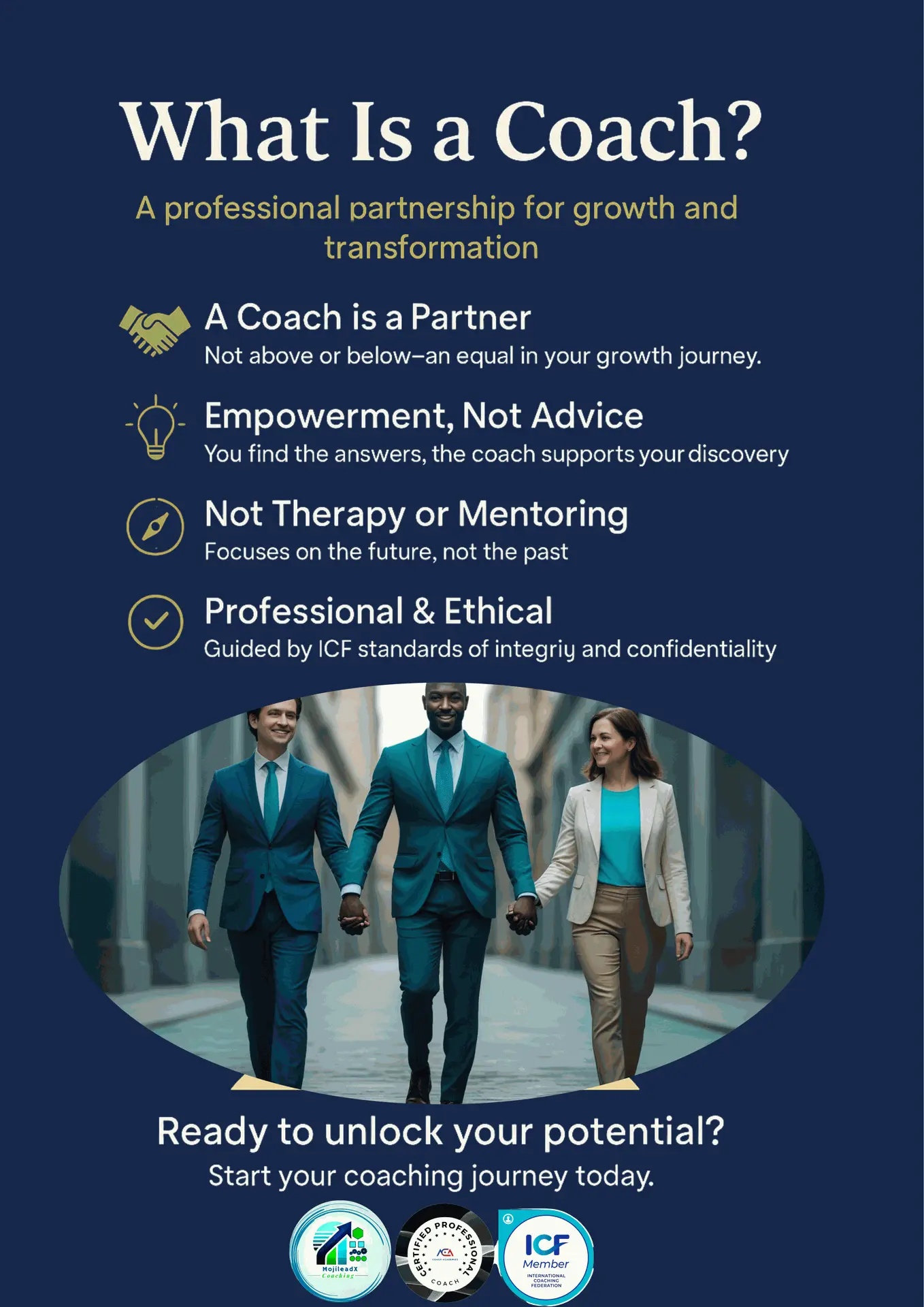Start In today’s dynamic world, coaching has emerged as a powerful tool for personal and professional development. But what exactly is a coach? Contrary to common misconceptions, a coach is neither a therapist nor a mentor. A coach is a partner—a professional who walks alongside the coachee, empowering them to unlock their potential and take ownership of their journey.
A True Partnership
At the heart of coaching lies a mutual, balanced relationship. The coach and coachee are on equal footing—neither one above the other. The coaching process is collaborative, not directive. It’s not about the coach offering solutions or being the expert; instead, it’s about the coach supporting the coachee in discovering their own answers and forging their unique path forward.
The coach listens, asks powerful questions, and provides a safe space for reflection and growth. This shared journey is designed to help the coachee gain clarity, set meaningful goals, and take actionable steps toward a fulfilling future.
Professional and Ethical Practice
Coaching is a distinct professional discipline, governed by ethical standards and often underpinned by credentials such as those from the International Coaching Federation (ICF). Upholding these standards ensures that coaches maintain confidentiality, respect the client’s autonomy, and commit to continuous development.
Coaching vs. Therapy vs. Mentoring
It’s important to distinguish coaching from therapy and mentoring:
• Therapy focuses on healing past trauma and addressing emotional or psychological concerns. It is rooted in clinical practice and aims to bring individuals to a place of stability and wellbeing.
• Mentoring involves a more experienced person guiding someone less experienced, often by offering advice and sharing expertise. It is inherently directive.
• Coaching, by contrast, is future-focused. It does not delve into unresolved psychological issues or offer expert advice. Instead, it helps individuals clarify their goals, explore options, and take meaningful action—all while staying present in the moment.
Empowering Through Conversation
The coaching conversation is powerful precisely because it is non-directive. Coaches don’t tell people what to do—they ask questions that invite deeper insight. This empowers coachees to make their own decisions, align with their values, and move forward with confidence and intention.
Final Thoughts
A coach is more than a guide—they are a catalyst for growth. By fostering a respectful, equal partnership, coaches help individuals tap into their own wisdom, live more consciously, and achieve lasting transformation. Whether in life, leadership, or career development, coaching is a journey of empowerment, awareness, and forward motion.
In a world full of noise and quick fixes, coaching offers something rare and invaluable: a space to think, grow, and become.
 ..
..